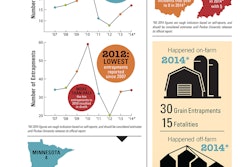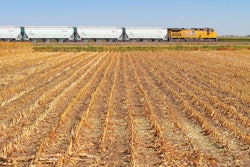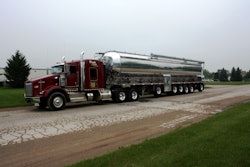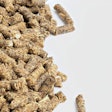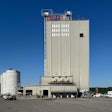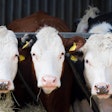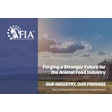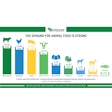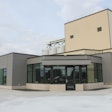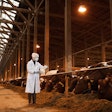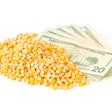Do you think the feed industry’s role in the global carbon footprint should matter to you and your company? What if the question was phrased: If your business is required to install costly new equipment and/or alter its current processes due to the global carbon footprint, would you take notice?
Are you willing to devote time and funding to research, on your own, to learn more about how your company could potentially be impacted by global carbon footprint issues? It seems to be a daunting question and task. What if it was phrased: Would you and your company devote time and funding to research, conducted by experts on the issue, and toward representatives to speak on your behalf to legislators?
The Institute for Feed Education & Research, a 501(c)(3) private foundation, was formed by the American Feed Industry Association in 2009 to address the big-picture issues that have the potential to affect everyone in the feed industry. IFEEDER works to sustain the future of food and feed production through education and research. Global carbon footprint is just one of the reasons the nonprofit works toward more information for the industry.
“As far as foundations go, ours is very young, but thriving,” explains IFEEDER executive director Ken Thomas. “We continue to evolve and learn about more ways to support the industry that supports the world.”
The evolution Thomas mentions includes a heightened commitment to initiating and implementing (or providing support for) research projects that will affect the entire industry. These projects are likely to go beyond the scope of what most feed companies can address individually.
A good example is IFEEDER’s participation in the United Nations Food and Agricultural Organization’s (FAO) partnership focused on how the environmental impacts of the livestock industry are measured and assessed.
With the hot button issue of global carbon footprint, having the American feed industry represented during discussions of how to measure and assess the environmental performance of the livestock sector is vital for developing credible and consistent life cycle analysis calculation tools. These tools result in accurate science-based findings and guidelines that are shared with policymakers and influencers.
“Many questions are being posed about our industry by special interest groups and consumers,” Thomas said. “One of IFEEDER’s goals is to make sure we deliver sound science, while working with other organizations, to conduct these research projects, and to provide information to AFIA to discuss with regulatory and legislative bodies on Capitol Hill.
Taking initiative
Thomas said the drumbeat of issues relating directly or indirectly to animal agriculture and feed production has prompted IFEEDER to become proactive in defining and initiating research projects, as well as being a participant in broad-based projects such as the FAO Life Cycle Assessment project and the National Academy’s Nutrient Requirements for swine, dairy and beef.
“Those are projects that have come our way, and we have helped to fund, because they are important for the future of the American feed industry,” explained Thomas.
“Now IFEEDER is also taking the position where we are talking to universities and nutritionists and asking them to send us requests for proposals as we seek new projects as the foundation grows,” Thomas said.
IFEEDER is also preparing its own RFPs for these research institutions and sent out the first round of requests earlier this year, based on input IFEEDER receives from AFIA member companies. “We’re saying, ‘you need to look at these issues because they are impacting our industry,’ ” Thomas explained. In both examples, IFEEDER is seeking new ways to be more proactive in identifying and supporting research that will directly impact the feed industry.
IFEEDER research initiatives fall into four categories: Legislation and regulatory issues; feed safety/food safety; nutrition (NRC & other) and health (well-being of livestock and pets); and sustainability. Sustainability, Thomas explained, refers to environmental, economic and social issues affecting the feed industry. Headed by Dr. Chad Risley, CEO of Berg-Schmidt America, the IFEEDER Research Committee determines the projects to initiate and support based on those four categories. Criteria includes the long-term benefit to the feed industry, recognizing studies often take three to five years to complete.
World-leading feed industry
Thomas said research funded in part by IFEEDER is both relevant and industry leading. He cites Dr. Frank Mitloehner, a professor and Extension air quality specialist at the University California-Davis, as saying the U.S. feed and livestock industry is a model for the world. Dr. Mitloehner chairs the FAO committee on Life Cycle Assessment.
“The science resulting from the research not only benefits our industry, but it’s important for the overall populous to know,” Thomas said. “The production quality and care that goes into producing livestock provides consumers with the safest, highest quality food in the world. Our industry is concerned about carbon footprint and we as an industry continue to find ways to reduce our impact.”
Thomas added another step forward for IFEEDER is its response to urgent situations. Soon after it became apparent of porcine epidemic diarrhea virus’s (PEDv) impact on hog production, IFEEDER committed $100,000 to research to the National Pork Board as part of the million-dollar campaign to investigate the risks and associated areas of concern.
That level of prompt and aggressive response also brings its challenges, Thomas said, specifically pertaining to funding. In the future, IFEEDER’s goal is to build an endowment fund available for supporting unforeseen initiatives.
Thomas noted that in IFEEDER’s FY2015 budget, 15 donors (both individuals and corporations can donate) made first-time pledges or contributions to IFEEDER.
“We are excited about these companies and individuals stepping forward to support the foundation that supports the industry they are so closely tied to. The donors recognize the benefits of education and research for the industry. We also thank all of our donors who have been supportive of our initiatives throughout the years,” said Thomas.
Education funding
Scholarships are another aspect of IFEEDER that will benefit as the endowment grows. IFEEDER has partnered with AFIA’s Equipment Manufacturers Committee to establish a scholarship program. Currently, the committee and IFEEDER are sponsoring four students with five-year scholarships at land-grant universities in the U.S. that have ties with AFIA.
Other education initiatives include the recently completed Smiles project, a series of videos showing ag production from the seed to the finished product for the consumer. “We’re showing the process involved in putting that nice steak or chicken dish on the dinner table, and the smile that is associated with the meals we love to eat,” Thomas says.
Thomas said he is pleased with the direction and progress of IFEEDER and encourages not only AFIA members, but all those in the feed industry, to get to know the foundation and the direction it is headed. To learn more about IFEEDER, its current projects and contribution opportunities, visit www.ifeeder.org.


